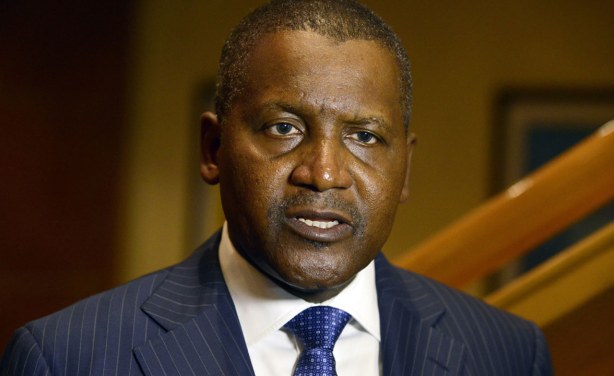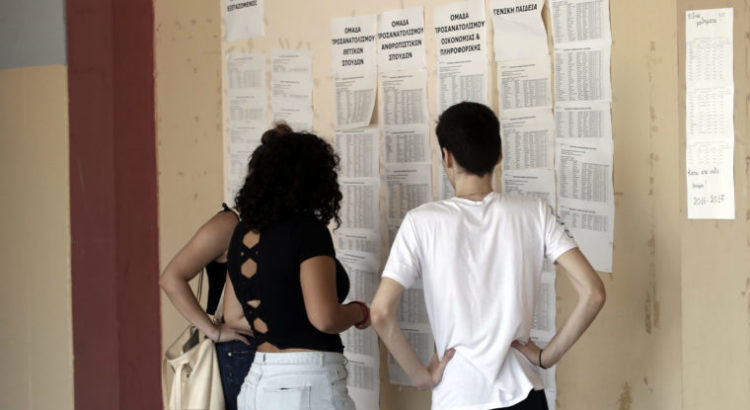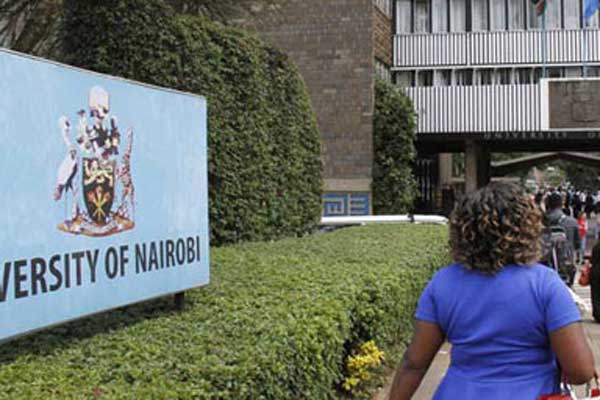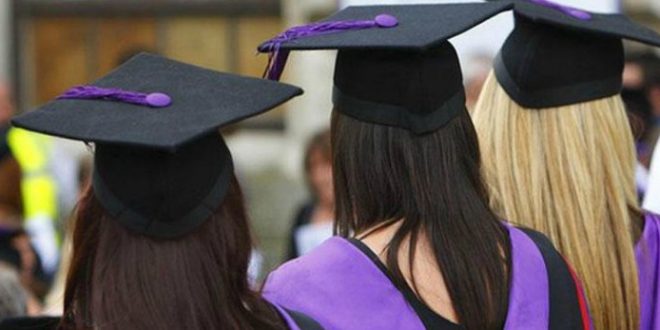By The Associated Press
A transcript of Education Secretary Betsy DeVos’ interview with The Associated Press, conducted last Wednesday in her office:
___
AP: President Trump has talked a lot about undoing some of the Obama legacy. When it comes to education can you talk to us about the areas where you think you’ve been successful in this regard? What is the federal role, the federal government’s role in education and how do you accomplish those goals?
DeVOS: Well those are a number of questions. Let me start with what we believe the federal government’s role is in education and that is a much less heavy footprint than has been present in recent years. We really believe that states are the best laboratories of democracy on many fronts and we are in the middle of moving to implement the ESSA, the Every Student Succeeds Act, which really dissolves power back to the states and gives them a lot more flexibility around meeting the needs of students in their unique states and with their unique situations. And we think that there has been an overreach in many cases on the part of the federal government in really intruding on states’ issues and states’ areas of responsibility as well as trying to engineer things from the federal level in a way that is not helpful to students overall.
AP: What about the Obama legacy? Have you been successful in looking at things that were done before and were …
DeVOS: From a higher ed perspective there were a number of regulations which we think have been very onerous and have targeted certain kinds of institutions based on their tax status and has been to the detriment ultimately of both those institutions and the students that are served. Those are areas in which we are pausing the regulations around gainful employment, borrower defense repayment, and we’re really examining a lot of other regulations and letters that have been put out in the course of the last eight years to see what ones really are serving students well and are really respectful of everyone involved.
___
AP: Just to follow up on that. You talked about institutions based on their tax status, so the for-profit schools, many of them have been found to have defrauded students, that have not provided the education that they were promised and the ability to find jobs. Has the fact that President Trump had a for-profit college, Trump University, that was sued for fraud complicated your efforts in this area at all.
DeVOS: Well, I go back to what I said originally about the fact that we believe the last administration really stepped much more heavily into areas that it should not and at the expense of a broader look at all institutions. Look, we are concerned and we are, we want to make sure that students have the best chance for a bright future. That involves first of all being much more aware of the full range of options and pathways of higher education so that’s a principle that you’re going to hear the president and me and others in the administration talk more broadly about. We have not done a good job at encouraging students to look at all their options when pursuing post-high school education. Career and technical education has been sort of diminished and dismissed over many years. That is an area we believe has bright promise for many students and needs to be elevated and honored in a way that really is, notes the opportunities there. But back to your original question around students and the opportunities they have, let’s be clear, no student should be defrauded and in case of fraud there should be remedy. But we also know this approach has been unevenly applied and if there’s going to be regulation around some institutions we believe it needs to be fairly applied across the board. And so going back and going through a whole proper process to look at this area and these regulations involves really a balanced approach involving feedback and input from all stakeholders, students, institutions alike.
AP: Can you talk to us a little bit about your relationship with President Trump and Vice President Pence? How often do you see them? Do you talk to them? Do they ask for your feedback? Do you get their feedback? And also President Trump’s disapproval ratings are about 57 percent. Does serving an unpopular president complicate your efforts in your job?
DeVOS: Well, we just had the vice president here in this building on Monday. He came joined for lunch with a small group of our team and then a broader group for a little bit of conversation and discussion. As you well know, as governor, Vice President Pence was very, very involved in education issues in Indiana and as a congressman before that and has been a real champion of the work that we’ve been doing, as has the president, frankly. And my interactions with the president have been consistently very encouraging, very positive, empowering of the work we are doing here. In terms of his leadership, I think he is a very strong and effective leader, in first of all selecting strong people to lead in the various agencies and departments and then giving us the opportunity to do what we do best and that is to pursue the policies and the direction that he has set out in a broad way and that each of us have expertise in pursuing in more granular detail.
___
AP: So how often do you meet …
DeVOS: There is not a consistent pattern, but I’m expecting to talk with him very soon. I’m probably not at liberty to say exactly when. But I’m scheduled to meet with him very soon and I look forward to that opportunity.
___
AP: You took office, President Trump took office, as big proponents of school choice, of ways to give America’s schoolchildren different options of where they are going to attend school. What do you see as the best way to accomplish this, especially given some of the budget fights we’ve seen so far on Capitol Hill, and the fact that we have such polarization and partisanship in Congress.
DeVOS: The primary way to accomplish this is for states to pass robust programs, which some of them have, and more are considering, but when we recall the fact that about 92 percent of education spending originates in the states and only 8 percent from the federal level, the federal government the federal role in funding of education is certainly negligible as compared to the states. That said, I think there is an opportunity for the federal government to set a tone and I’m working to continue to do so every opportunity I have to talk about this to encourage states to look at programs within their states to consider the president’s … the president has talked repeatedly about empowering parents with more choices and we are collectively discussing the best way to implement something like that, to encourage that from the federal level without enacting a big new federal program that’s going to require a lot of administration. So those discussions are ongoing and as soon as we have something more specific in that area we’ll be happy to share that with you.
___
AP: So let me follow up on that a little bit. About a third of the states have established tax-credit scholarships as a way of promoting choice. We’ve heard a lot about tax reform as the president’s next focus in Congress, to try to get tax reform passed. Can you envision a federal tax credit scholarship program will be part of any tax reform proposal that the administration puts forward?
DeVOS: It’s certainly part of our discussion.
___
AP: Just one more question on the tax-credit scholarships and also on state voucher programs that have been established. How do you hold them accountable? How do you measure success? What would you like to see as the secretary of education that states implement to make sure that they’re doing the job that they’re supposed to be doing?
DeVOS: Well, I think the first line of accountability is frankly with the parents. When parents are choosing school they are proactively making that choice. And schools are accountable to the parents. And vice versa, the students doing well and working to achieve in the schools. I think it’s important for parents to have information about how their students are doing, how they’re achieving, how they’re progressing. And that kind of transparency and accountability I think is really the best approach to holding schools accountable broadly. It starts with holding themselves accountable to communication of relevant and important information to students and parents about how they are doing. And we know from, that when parents choose and they are unhappy with whatever the school setting is they will choose something different. And that’s the beauty of having choices.
___
AP: Given your experience in Michigan with charter schools, what are some of the lessons we can learn? What were some of the good things about charter schools there? What are some of the difficulties, challenges that you encountered, and can we solve them?
DeVOS: As you know, Michigan is limited in its offering of choice to having only charter schools so there’s no private school program choice in Michigan largely due to the fact that we have a very restrictive Blaine amendment in Michigan. But the charter school, the growth of charter school offerings in Michigan, is responding to the demand of parents and today there are still tens of thousands of parents wanting and waiting to get their children into charter schools, so the growth of them you can see has not kept up with the demand. Michigan has had a very robust accountability mechanism in that the chartering authorizers are held accountable for the performance of the schools that they charter. And there have been charters schools that have closed because of lack of enough students, so not enough parents choosing to send their child to whatever school or their fiscal performance. The fact that there have been charter schools closed I think is evidence of the fact that there is accountability. At the same time, there have been zero traditional public schools closed in Michigan for performance and I think that’s a problem. I think that’s really a problem particularly in the city of Detroit where there have been schools that have not served students well for many, many years and yet students are still forced to go there year after year after year. You know every year that this is not addressed and dramatic changes are not made, it takes a toll on the students that are forced to go there.
___
AP: I’d like to talk higher ed for a minute. In recent days, we had, there was a leak of the internal Justice job posting related to affirmative action. We see Justice is going ahead and pursuing the case against Harvard on claims of discrimination filed by Asian-American students. The Education Department hasn’t weighed in on this, on the topic of affirmative action. Do you favor affirmative action programs in college admissions?
DeVOS: Well, I think this has been a question before the courts and the courts have opined. We have not been involved with the Justice Department’s posting and again I think as they have stated, this was an internal issue and one that they are continuing to move forward on. I think the bottom line here is that we want an environment where all students have an opportunity, an equal opportunity to get a great education whether that’s at the K-12 level or the higher-ed level. And it’s our goal to see all students have the opportunity to succeed, no matter where they come from, no matter their family background, no matter their family income and that’s my goal, that’s my personal goal and I know that’s the goal of our team here at the Department.
___
AP: There has been some mistrust of you and the department among the minority communities after comments you made about the historically black colleges and universities, the action of LGBTQ, transgender bathroom issue. How do you counteract that? How do you let these communities know just what you are saying, that you are on their side?
DeVOS: Well, let me just comment on what I think was an out of context comment and a misunderstanding with the HBCUs. When I talked about it being a pioneer in choice it was because I acknowledge that racism was rampant and there were no choices. These HBCUs provided choices for black students that they didn’t have. I think that that comment was — while I could have said it, stated it much better — my intention was to say they were pioneering on behalf of students that didn’t have another choice. This was their only choice. And at the same time I should have decried much more forcefully the ravages of racism in this country. My last three decades have been working on behalf of primarily minority families and students to allow them to make choices for their kids. And to think anything otherwise, my feelings otherwise for providing opportunities for minority students is just absolutely false. I mean, that’s where my heart has been for three decades is to really empower and allow all families the same kind of opportunities I’ve had for my kids.
___
AP: Have you reached out to some of the organizations, NAACP and others to tell them what you are just telling us?
DeVOS: I’ve had these conversations with some of the African-American organizations that represent higher education, but probably not as explicitly as I am right now.
___
AP: Just to follow up. I know you said the Department of Education hasn’t been involved in that internal memo with the Justice Department. Do you personally believe that race should play a role in admissions? Race, ethnicity?
DeVOS: Well, what I believe is that we have to change the dynamic for kids on the K-12 system that for all too many kids who are minority students is failing them. It is not fair to think that when students transit through a K-12 system that is not preparing them for beyond, that somehow we are going to waive a magic wand and things are going to be perfect for them at the higher-ed level. So I’ve always said: What we should really be talking about is what are we doing to ensure that every single child no matter their family income, no matter their racial background, no matter their zip code has equal opportunities to access a quality education. We have seen decades of top-down mandated approaches that protect a system at the expense of individual students. I am for individual students. I want each of them to have opportunity to go to a school that works for them.
___
AP: When college admissions officers look at students’ applications, they look at their scores, their grades, their credits, their classes, music. Should they also look at their race when deciding whether to admit them or not?
DeVOS: Well, they are looking at that. That is a factor today. I am not going to debate that, I am not going to discuss that. What I want to discuss is the process that gets them from kindergarten through 12th grade and the fact that there are not enough choices and there are not enough options for all students to find the right niche for them. It also feeds into the higher-ed issue is incumbent on K-12.
___
AP: What will be the department’s role, if any, in that Harvard lawsuit?
DeVOS: I can’t comment to that. We are not really involved in that. I just don’t have anything additional to add to that right now.
___
AP: After your day long listening session on campus sexual assaults, you said, “We can’t go back to the days when allegations were swept under the rug,” but also added that it’s “an issue we’re not getting right? Do you plan to withdraw the Dear Colleague letter the Obama administration issued to campuses telling them what they need to do pursue investigations of allegations of assault?
DeVOS: What we are continuing to do is listen to and talk with individuals from all perspectives on this issue because as we know as a fact no matter where we’re coming from, whether you’re a survivor, whether you’re an accused individual, whether you’re part of an institution charged with navigating these issues, it is not working right and well for anyone. All the individuals I’ve talked with have said we need to have a process and a system that we know is right and fair for everyone involved. So, we’re continuing to have those conversations and are continuing to learn and to research what some of the options might be going forward. But we know we have to get this right. We have to get this right on behalf of all students. I think it goes without saying, but I’ll say it, sexual assault anywhere at any time is horrible and we need to decry it and at the same time we need to ensure that the processes to address it when it happens are done right.
___
AP: Some of our colleagues at the AP did an investigation looking at sexual assaults from K-12 and found that in a four-year period there were about 17,000 cases. So, it’s clearly not just a higher ed issue? What do you think schools need to do to educate their students about that issue and how early should that education begin?
DeVOS: I don’t think it can begin too early. Clearly, it has to begin in the home and from the earliest conversations and I think it begins with adults modeling respect for one another and I think that again the … dealing with an issue of sexual assault. It is one of end of the spectrum. The other end is how do we help foster and create environments where men and women respect one another and treat one another with respect. And that starts with adults modeling it for the children in their own families and classrooms and any environment where you have the opportunity to interact with kids.
___
AP: Should schools have a role in this?
DeVOS: Well, I think schools naturally do. I think again there is opportunity for adults to behave like adults and model the kind of behavior that we would help for children to learn and respect as they grow up.
___
What about classes in the K-12 system, like sexual education, anti-sexual assault classes?
DeVOS: Having conversation around how you treat one another is a good thing, but also know that often actions speak louder than words and so I think the opportunity to model good behavior when children are at a very young age is important. I have six grandchildren and I’m keenly aware of the opportunity I have as a grandmother and my husband as a grandfather to pour into those children. And I would just hope that all parents and grandparents are really intentional about that. They’re the primary educators. Clearly educators in the classroom have an opportunity as well but it’s not a one place, one time conversation. It’s really is a lifetime of conversation and modeling I think.
___
AP: One final question, quickly. Some of your critics call you a public school denier. You didn’t have a lot of experience with public schools before you started this job. What have you learned about public schools? What are some of their strengths? What can you learn from them? Maybe some of their successes that need to be replicated.
DeVOS: Well, I am first of all a very strong supporter of public schools, of great public schools. I know there are many schools that do a great job for the students they serve. And at the same time I know that even the best public school might not be a great fit for every single child and we need to recognize and acknowledge that. But we also need to encourage schools, public schools that are doing a great job to not rest on their laurels but to continue to improve because unless you’re constantly oriented around continuous improvement and excellence we know that there’s going to be reversion to something less than that. So it will be my continued encouragement that they are oriented around continuing to do better and better and better each and every year, each and every day, each and every month, each and every year that they’re continuing to serve students. And, hand in glove with that, is the really important role that classroom teachers play and I think we need to honor and support great teachers in a way that I don’t think they’ve been probably recognized as much recently, and we also need to be honest if there are classroom teachers who are not doing the job and I think there’s got to be more conversation around that because we know for a fact that great classroom teachers are irreplaceable when it comes to students’ ability to advance and achieve.
Source:
https://federalnewsradio.com/government-news/2017/08/transcript-of-education-secretary-devos-interview-with-ap/













 Users Today : 30
Users Today : 30 Total Users : 35460047
Total Users : 35460047 Views Today : 43
Views Today : 43 Total views : 3418674
Total views : 3418674